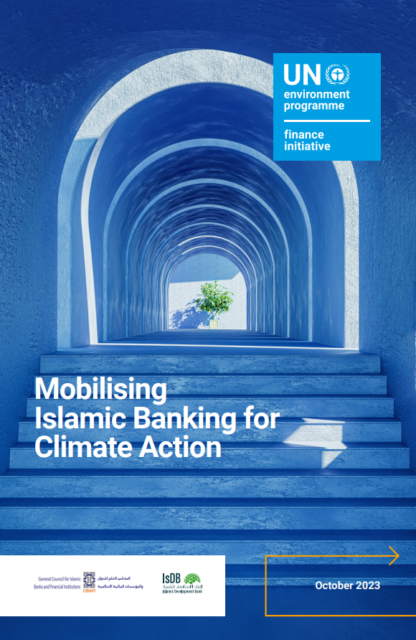The Middle East and North Africa (MENA) region is confronted with more extreme heat and less precipitation with every degree of global temperature rise. Operating in an area that’s highly vulnerable to the physical impacts of climate change, financial institutions in the region are both exposed to high risks but also presented with great investment opportunities in the transition to a low-carbon economy.
As an important part of the MENA and the global finance industry, Islamic finance has the potential to be a significant driver of climate finance in the region. In addition to regulatory imperatives and financial rewards, there also are clear moral reasons for incorporating climate action into Islamic banks’ business strategies. However, most Islamic finance institutions are only in the early stages of assessing and mitigating climate risks.
This comprehensive guide provides an overview of the current state of climate action in Islamic finance, and a summary of the Islamic basis for action on climate change. It also includes a clear pathway and recommended actions for Islamic banks and regulators in the region to develop an Islamic finance sector that is both resilient and proactive in the face of a changing climate.
This resource was developed by UNEP FI together with the Islamic Development Bank (IsDB) and the General Council for Islamic Banks and Financial Institutions (CIBAFI).



